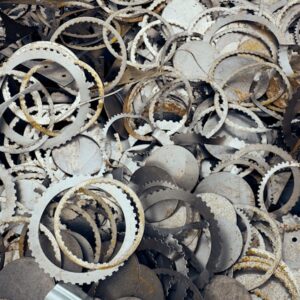Flooring in commercial spaces is a high-traffic area and requires adequate upkeep to reduce wear and tear. Inspecting and cleaning floors regularly also helps to lower costs associated with new flooring, reduce liabilities due to accidents involving deteriorating flooring, and conserve resources by extending the life of existing flooring.
Each type of commercial floor has different cleaning and maintenance requirements. Create a customized cleaning strategy that reflects the specific types of flooring in your building.
Prevents Damage
Keeping your commercial floor clean can help prevent damage caused by heavy foot traffic. Dirty floors can cause scratches and dents that will need to be repaired. This could cost you a lot of money. A regular cleaning schedule will minimize this damage and keep your floors looking great.
Clean flooring is one of the first things potential or current customers notice when entering your building. It also gives them an impression of how professional your company is.
Commercial flooring Manhattan NY is often made of specialized materials requiring special care to ensure longevity. Hiring experts with experience working with various floor types, including terrazzo, natural stone, and VCT, is best. These professionals will be able to identify the specific needs of your flooring and create a maintenance plan that suits it. This will maximize the lifespan of your flooring while protecting it from unnecessary wear and tear.
Prevents Stains
When a new customer enters a commercial facility, the floor is one of the first things they notice. That impression can reveal positive or negative elements about a business, including cleanliness and style.
Because of their design, commercial floors are built to endure more foot traffic than residential flooring. This high-volume traffic can create severe damage over time, including discoloration and warping.
However, these damages can be avoided with a preventative maintenance plan that includes regular cleaning and inspecting the flooring’s condition. These inspections can help identify potential issues that need to be addressed, such as worn or damaged areas.
This can also include adding entry mats to reduce the amount of dirt brought inside from shoes and clothing. These mats should be cleaned regularly and placed at every entrance point to prevent excessive wear on the main floor. Proper storage methods for tools, equipment, and furniture can also prevent damage to the floor.
Prevents Warping
Commercial spaces see a lot of traffic daily, with people coming and going from offices, shops, schools, hospitals, and more. That means that the floors have to be strong enough to endure a significant amount of long-term wear and tear.
If your flooring starts to warp, it can lead to divots or bumps that create a trip hazard for anyone walking on the floor. Sometimes, this can be fixed by sanding and then refinishing the floorboards. However, if the wood has changed shape, this may require more extensive work that could involve replacing the entire floorboard.
Carpet tiles are a standard option for commercial spaces, as they can be laid in a connected pattern and come in various designs and colors. These are easier to maintain than broadloom carpets and can be simpler to replace if damaged. These are also more durable than vinyl and can handle heavy foot traffic.
Prevents Discoloration
Commercial flooring carries much more weight than residential flooring, with many pairs of feet coming and going throughout the day. Because of this, a more robust floor is required to handle the constant wear and tear.
A good preventative maintenance plan will help keep your hard floors in the best shape possible. For example, using a vapor barrier and placing rugs in high-traffic areas can protect your commercial floors from damage during the summer months.
Your janitorial staff should also follow manufacturer-recommended cleaning procedures for each type of commercial flooring in your facility. For example, vinyl composite tile (VCT) might require daily sweeping and mopping, while stone flooring may need weekly deep cleans with strippers and refinishing.




